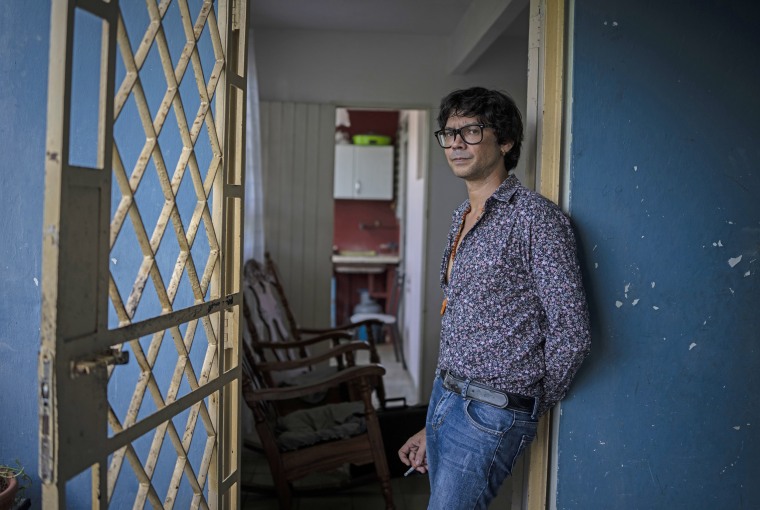A young Cuban playwright who caught the world’s attention for his recent activism and calls for protests on the island posted on Facebook Wednesday that he and his wife had arrived in Spain "alive and well" and with their “ideas intact.”
He thanked friends who had been concerned about them.
In recent weeks, Garcia had become the leading figure in calling for protests demanding greater freedoms from the communist run island. The protests that were supposed to take place Monday were largely suppressed by the government.
García, attempted to march alone on Sunday but was prevented from leaving his apartment after police and government supporters surrounded his building. When he attempted to communicate with journalists and others by holding a white rose through his window and posting a sign that read “my house is blocked,” people standing on the roof dropped a large Cuban flag to cover his window.
Members of the group Archipelago said on social media that they had not heard from Garcia since early on Tuesday, a day after the planned rallies on Nov. 15.
It had been reported earlier that García and his wife had landed at Madrid’s Barajas airport but this was the first time he made public statements since Sunday.
“We have to appreciate many people who have made this trip possible,” wrote García on Facebook.
He also said he had gone many days without communication and needed to get up to date with the other members of Archipelago, a group he founded. Garcia said he would soon give an account of his "odyssey."
Cuba's government accused Garcia multiple times of being financed by the U.S. and considered the protests an attempt by the U.S. government to destabilize the country.
Garcia and other members of Archipelago were trying to build on the momentum of the protests that took place throughout the island in July, where thousands took to the streets. They were the largest demonstrations in decades where people protested against shortages of food and medicine, limits on freedom, and the handling of the pandemic.
A crackdown on the protesters led to massive arrests. Over 600 Cubans are still jailed, including some of Cuba's best known dissidents.
Follow NBC Latino on Facebook, Twitter and Instagram.

